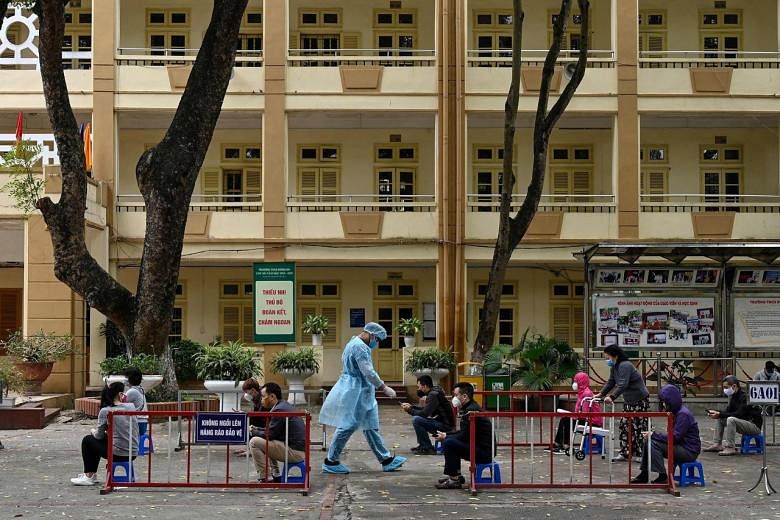SINGAPORE - There is not enough information on the new "Vietnam variant" of the coronavirus to tell if it is circulating in Singapore, said Singapore's director of medical services on Monday (May 31).
Speaking as part of the multi-ministry task force, Associate Professor Kenneth Mak was responding to questions at a virtual press conference on whether there are any traces of the new variant here.
Vietnam's Health Minister said last Saturday (May 29) that the authorities there had detected a new coronavirus variant that is a combination of the Covid-19 variants first found in India and Britain, and spreads quickly by air.
Prof Mak said on Monday that this discovery had been made by Vietnam's National Institute of Hygiene and Epidemiology after testing four cases in its country.
The Vietnamese health authorities said they found a particular gene in the variant had been deleted. That gene codes for part of the spike protein on the B16172 variant.
However, Prof Mak noted that as at Sunday, the Vietnamese had not registered this information with the global registry that Singapore uses to track emerging viral variants around the world.
"So until it's actually registered with the global registry, we don't have enough information to tell what kind of specific variant of interest this is," said Prof Mak.
Singapore has not yet seen the deletion that was described by the Vietnamese in any of its cases, he added.
He said the B16172 variant itself has many sub-variants, which emerge as the virus continues to evolve and mutate.
The World Health Organisation has asked all countries to exercise caution in interpreting the results of the Vietnam variant because the deletion of the gene is not currently known to be associated with any increased virulence, transmissibility, or infectivity, Prof Mak said.
"So we await more information before we can actually tell whether this particular viral variant would become a variant of concern," he said.












